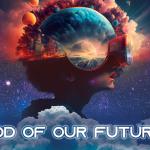Augustine is often charged with a quasi-unitarian, quasi-modalistdoctrine of God. The one substance so dominates the three Persons that the latter are reduced to inflections or operations of what amounts to a single divine Person.
Augustine’s discussion of substance, accidents, and relation goes in precisely the opposite direction, however. Augustine deals with the Arian argument that, given God’s simplicity, all terms about God must be understood substantively, and therefore the “ingenerate” Father cannot be the same substance as the “generate” Son.
Augustine agrees that there are no accidents in God, but He introduces a third category, relation, to deal with certain statements that Scripture makes about God. And in the process of introducing that distinction he distinguishes between Creator and creature.
With creatures, it is true that everything that is not said secundum substantiam is said secundum accidens . This applies not only to magnitudes and qualities inherent in a created thing ( magnitudines et qualitates ) but also to external relations ( quod dicitur ad aliquid ). Friendships, proximities, subordinations, likenesses, equalities, etc are all “accidental” in creatures.
But this is not true of God. In the life of the Trinity, relational terms are not accidents even though they are spoken ad aliquid . Relations of Father and Son are spoken relativum , but they are permanent features of the life of God, since the Son is always Son and teh Father always Father. Relations, in short, are inherent in God’s being in a way (Augustine says) that they are not for creatures.
It seems that Augustine understood the metaphysical revolution of the Cappadocians (Zizioulas’s claim) better than many have suggested. He recognizes that in God being is communion, that person is not added-on but inherent, and that the relation of One to Another is a feature of divine life as such.
Where Augustine falls short, if not of the Cappadocians themselves then of Zizioulas’s Cappadocians, is in his firm distinction between creaturely and Creatorly being. For Augustine, being is comunion for God, but that is not the case for creatures.














